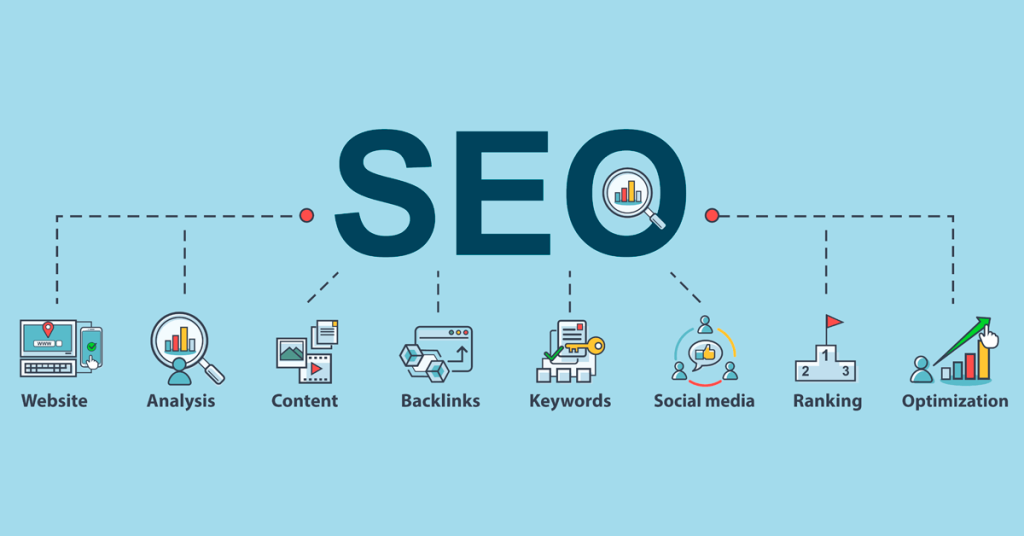Growing a SaaS business isn’t just about having a great product anymore. With thousands of software solutions flooding the market, standing out requires mastering the digital landscape – and that’s where a solid SaaS SEO strategy comes into play.
Unlike traditional SEO approaches, B2B SaaS SEO demands a unique perspective. The sales cycles are longer, the decision-makers more numerous, and the technical considerations more complex. Let’s dive into proven strategies that actually move the needle for SaaS companies.

1. Technical SEO: Building a Strong Foundation
Your technical SEO framework can make or break your organic growth efforts. Start by ensuring your SaaS website loads quickly and performs flawlessly across all devices. Did you know you can enjoy a 5x higher conversion rate when your website loads in a second?
Key technical optimizations include:
- Implementing proper schema markup for SaaS products
- Structuring URLs logically for product pages and feature sections
- Setting up comprehensive XML sitemaps
- Optimizing Core Web Vitals
Pro tip: Use Google Search Console to monitor technical issues before they impact your search engine rankings.
2. Strategic Keyword Research: Beyond the Basics
Effective keyword research for SaaS brands requires thinking in terms of the entire marketing funnel. Your target keywords should align with different stages of the buyer journey:
Top of funnel:
- Problem-awareness terms
- Industry pain points
- General solutions
Middle of funnel:
- Product comparisons
- Feature-specific searches
- Integration possibilities
Bottom of funnel:
- Product name + reviews
- Pricing comparisons
- Implementation guides
Instead of chasing high search volume terms, focus on search intent and traffic potential that matches your ideal customer profile. Note that keyword research can be confusing. And doing it in terms the entire marketing funnel makes things more complicated. Unsure how to go about it? Seek help from a SaaS SEO expert. These consultants can advise you on the best way to tackle SaaS keyword research. Others can do it themselves for you. It saves you the hassle of spending many hours on keyword research and not getting your desired results in the end.
3. Content Strategy That Converts
Quality content remains king, but SaaS content marketing strategy needs special attention. Create topic clusters around your core features and solutions. This approach helps search engines understand your authority in specific areas while providing value to your target audience.
Essential content types include:
- Detailed product pages that showcase features and benefits
- Educational blog posts addressing industry challenges
- Technical documentation that doubles as SEO content
- Case studies demonstrating real-world impact
- Integration guides and API documentation
Remember to maintain a consistent content calendar and focus on creating great content that serves both search engines and potential customers.
4. On-Page Optimization for SaaS
While on-page SEO fundamentals apply across industries, SaaS websites need specific optimizations:
- Feature comparison tables with schema markup
- Clear pricing sections with transparent terms
- Integration marketplace pages
- Robust documentation sections
- Free trial/demo landing pages
Each page should target relevant keywords while maintaining natural language and user engagement.
5. Building Authority Through Strategic Link Building
Link building for SaaS companies requires a different approach than traditional SEO services might offer. Focus on:
- Creating original research and industry reports
- Developing integration partnerships
- Contributing expert insights to industry publications
- Leveraging customer success stories
- Building relationships with B2B SaaS influencers
Your domain authority grows naturally when you provide genuine value to your industry ecosystem.
6. Conversion Rate Optimization: Making Traffic Count
Getting traffic isn’t enough – you need to convert visitors into users. Focus on:
- A/B testing landing pages
- Optimizing your marketing funnel
- Reducing customer acquisition costs through organic channels
- Improving user experience across all touchpoints
- Implementing smart exit-intent strategies
7. Measuring What Matters
Track these key metrics to gauge your SEO performance:
- Organic traffic growth by funnel stage
- Conversion rates from organic search
- Feature page performance
- Documentation engagement metrics
- Customer acquisition costs from SEO
Use tools like Google Search Console alongside your project management software to keep your SEO team aligned with overall business goals.
Implementation Tips for Success
How can you ensure success as you implement the strategies outlined and discussed above? Consider the following tips:
- Start with a comprehensive SEO audit
- Build your strategy around user intent
- Create content that serves your entire funnel
- Optimize technical elements continuously
- Monitor and adjust based on data
Remember, effective SEO strategy for SaaS is a marathon, not a sprint. Focus on sustainable growth rather than quick wins.

Moving Forward in Organic Growth Saas with SEO
As search engines evolve and the SaaS industry matures, your SEO approach must adapt. Stay current with SEO trends while maintaining focus on fundamentals that drive organic growth.
For best results, consider whether your internal marketing team has the bandwidth and expertise to execute these strategies, or if partnering with specialized SaaS SEO agencies might accelerate your progress.
By implementing these strategies systematically, you’ll build a strong online presence that drives qualified traffic and converts visitors into loyal customers.

